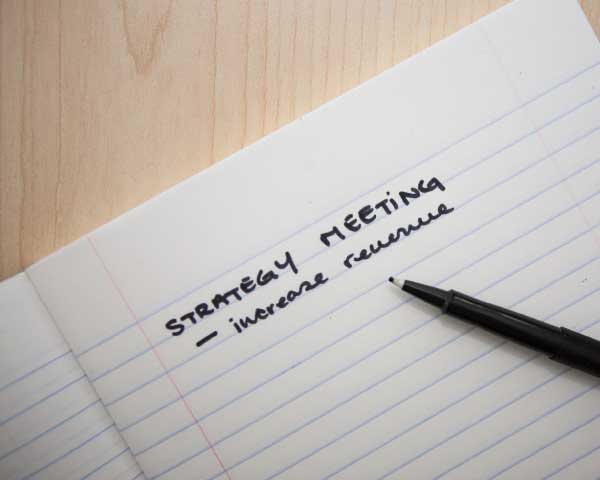Is it time to sell?
Selling your business is a major decision! You have devoted your time, money, and energy into building, running, and operating your business. It may well represent your life’s work. If you have already decided that now is the right time to sell, you want the very best professional guidance you can get. This is when working in tandem with a professional business broker can make the difference between just getting rid of the business and selling it for the very best price and terms!
For Business Sellers
If you’ve gone this far, then selling your business has aroused enough curiosity that you are taking the first step. You don’t have to make a commitment at this point; you are just getting informed about what is necessary to successfully sell your business. This section should answer a lot of your questions and help you through the maze of the process itself.
The following are some of the most common topics and questions frequently brought up by sellers. If you have any questions that we have not covered, please don’t hesitate to contact us.


The First Steps
Okay, let’s assume that you have decided to at least take the first few steps to actually selling your business. Before you even think about placing your business for sale, there are some things you should do first. The first thing you have to do is to gather information about the business.
Documentation To Prepare
- Three years’ profit and loss statements
- Federal Income Tax returns for the business
- List of fixtures and equipment
- The lease and lease-related documents
- A list of the loans against the business (amounts and payment schedule)
- Copies of any equipment leases
- A copy of the franchise agreement, if applicable
- An approximate amount of the inventory on hand, if applicable
- The names of any outside advisors
Useful Information
If you’re like many small business owners, you’ll have to search for some of these items. After you gather all of the above items, you should spend some time updating the information and filling in the blanks. You most likely have forgotten much of this information, so it’s a good idea to really take a hard look at all of this. Have all of the above put in a neat, orderly format as if you were going to present it to a prospective purchaser. Everything starts with this information.
Make sure the financial statements of the business are current and as accurate as you can get them. If you’re half way through the current year, make sure you have last year’s figures and tax returns, and also year-to-date figures. Make all of your financial statements presentable. It will pay in the long run to get outside professional help, if necessary, to put the statements in order. You want to present the business well “on paper.” As you will see later, pricing a small business usually is based on cash flow. This includes the profit of the business, as well as the owner’s salary and benefits, the depreciation, and other non-cash items. So don’t panic because the bottom line isn’t what you think it should be. By the time all of the appropriate figures are added to the bottom line, the cash flow may look pretty good.


Prospective buyers eventually will want to review your financial figures. A Balance Sheet is not normally necessary unless the sale price of your business would be well over the $1 million figure. Buyers want to see income and expenses. They want to know if they can make the payments on the business (more on this later) and still make a living. Let’s face it, if your business is not making a living wage for someone, it probably can’t be sold. You may be able to find a buyer who is willing to take the risk, or an experienced industry professional who only looks for location, etc. and feels that he or she can increase business.
The big question is not really how much your business will sell for, but how much of it can you keep? The Federal Tax Laws determine how much money you will actually be able to put in the bank. How your business is legally formed can be important in determining your tax status when selling your business. For example: Is your business a corporation, partnership or proprietorship? If you are incorporated, is the business a C corporation or a sub-chapter S corporation? There are also tax rules that impact certain businesses on seller financing. The point of all of this is that before you consider price or even selling your business, it is important that you discuss the tax implications of a sale of your business with a tax advisor. You don’t want to be in the middle of a transaction with a solid buyer and discover that the tax implications of the sale are going to net you much less than you had figured.

Who Are The Buyers?
Buyers buy businesses for many of the same reasons that sellers sell businesses. It is important that the buyer is as serious as the seller when it comes time to purchase a business. If the buyer is not serious, the sale will never close. Here are just a few of the reasons that buyers buy businesses:
- Laid-off, fired, being transferred (or about to be any of these)
- Early retirement (forced or not)
- Job dissatisfaction
- Desire for more control over their lives
- Desire to do his or her own thing
A Buyer Profile
Here is a look at the make-up of the average individual buyer looking to replace a lost job or wanting to get out of an uncomfortable job situation. Chances are he is a male (however, more and more women are going into business for themselves, so this is rapidly changing). Almost 50 percent will have less than $100,000 in which to invest in the purchase of a business. In many cases the funds, or part of them, will come from personal savings followed by financial assistance from family members. The buyer will never have owned a business before, and most likely will buy a business he or she had never considered until being introduced to it.
Their primary reason for going into business is to get out of their present situation, be it unemployment or job disagreement (or discouragement). Prospective buyers want to do their own thing, be in charge of their own destiny, and they don’t want to work for anyone. Money is important, but it’s not at the top of the list; in fact, it probably is in fourth or fifth place in the overall list. In order to pursue the dream of owning one’s own business, the buyer must be able to make that “leap of faith” necessary to take the risk of purchasing and operating a business.
Buyers who want to go into business strictly for the money usually are not realistic buyers for small businesses. Keep in mind the following traits of a willing buyer:
- The desire to buy a business
- The need and urgency to buy a business
- The financial resources
- The ability to make his or her own decisions
- Reasonable expectations of what business ownership can do for him or her
